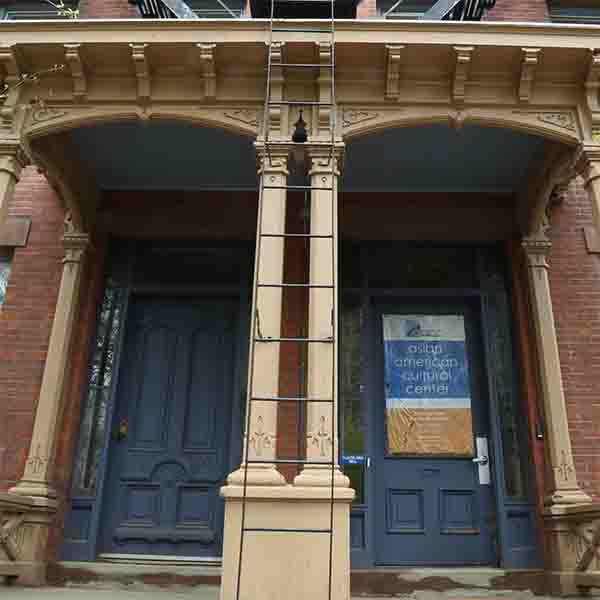
Commemorating its history and looking forward to the future, Yale’s Asian American Students Alliance, or AASA, is celebrating its 50th anniversary this week with an events-packed calendar, culminating in a three-day conference this coming weekend.
This year’s celebration, themed “Passing on the Spirit,” has been in the works since February 2018, according to AASA co-Moderators Lillian Hua ’21 and Brandon Lu ’21. The celebratory week kicked off last Friday at the Asian American Cultural Center with an event exploring the history of Asian Americans and Asian American activism at Yale. The week will feature 10 events in total, ranging from AASA Woads on Wednesday night to an exhibition dedicated to AASA’s past activism at the AACC on Friday night. AASA will also host a conference for students and alumni that will include a networking lunch, a gala dinner and several panel discussions featuring student, faculty and alumni panelists, including some of the founders of AASA.
“The 50th is just a reflection of what we take for granted and what we can learn from history,” Lu said. “But also, the 50th is maybe a turning point for AASA too. AASA has different goals now, has a different student body, so it’s a good time to talk about what we can take from the past but also what is our goal looking forward. What kind of student activism are we going to participate in, and what issues today are pertinent to our student body?”
Hua said that for the celebration, AASA’s leadership aimed to unearth the history of AASA and Asian Americans at Yale by going through alumni lists, doing archival research and talking to past deans of the AACC. AASA — along with MEChA de Yale, a political and social activist group that “ direct[ly] respon[ds] to the problems that affect the Chicanx/Latinx population and other communities of struggle,” according to its website, and the Black Students Alliance at Yale — “formed in response to some racist experiences” in the late 1960s, Hua said. But she added that AASA’s programming and activities shifted over the years as the University’s demographics changed.
Stella Xu ’21, who is in charge of planning most of the week’s events, said that the planning committee looked to create a balance between “more serious discussion or workshop-based events” and social and cultural events and to encourage students unfamiliar with AASA to become more involved with the Asian and Asian American communities.
Xu added that the committee also looked to acknowledge the “intertwined history” of the creation of AASA, coeducation at Yale, the establishment of MEChA de Yale and the institution of an ethnic studies program at San Francisco State University — one of the first such programs in the country. All of the events happened roughly 50 years ago, she explained. Several of the events were or will be held in collaboration with other student organizations, such as “Just Desserts: A Social Justice Extravaganza,” was co-hosted with the Association of Native Americans at Yale, MeCHA and Black Students Alliance at Yale.
“Yale was not made for people like us, yet we’ve been here for over 50 years,” Xu said. “In light of recent faculty and student organizing efforts for the [Program of Ethnicity, Race and Migration], we hope that these anniversaries will provide momentum and support to the movement for ethnic studies at Yale.”
One of the panel discussions at the conference this weekend will focus on ethnic studies and the recent developments in the debate over the Program of Ethnicity, Race and Migration at Yale. Last Friday, 13 professors withdrew from the program, citing administrative disinterest in the program, including lack of hiring ability and Yale’s failure to recognize academic work conducted in the field of ethnic studies. These withdrawals followed calls to make the ER&M program into its own department from the student-led Coalition for Ethnic Studies at Yale.
Hua said that AASA originally planned to host several smaller, concurrent panels during the time slot now given to ER&M but decided to merge existing panels into a larger one focused on ethnic studies. The panel will feature five faculty members and several student coalition leaders who are currently pushing for reform of Yale’s ER&M program.
“Having all of them in a room along with a hundred alums who also fought for this exact issue and exact program but 40 years ago, and [along with] students today who have their major at risk like I do — I think that’s going to be a really crazy ball of energy,” Hua said.
Of the members of the class of 2022, 21.7% identify as Asian American, according to the Admissions Office.
Asha Prihar | asha.prihar@yale.edu







